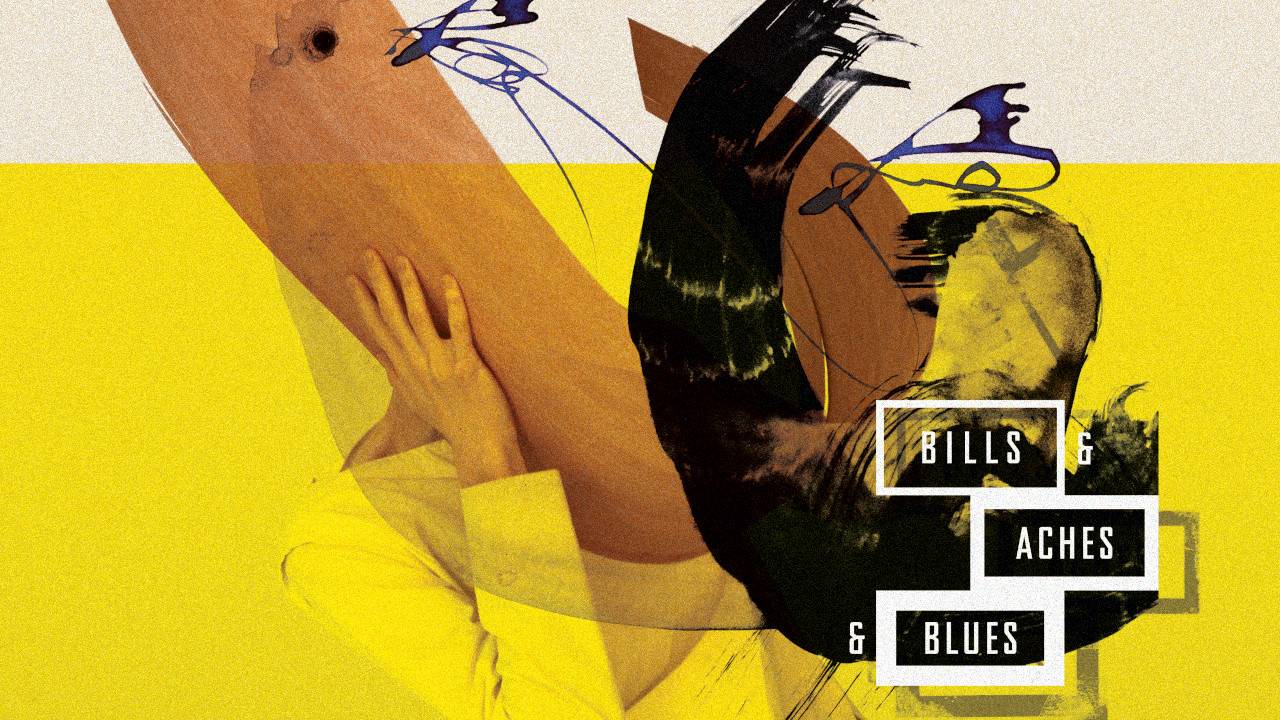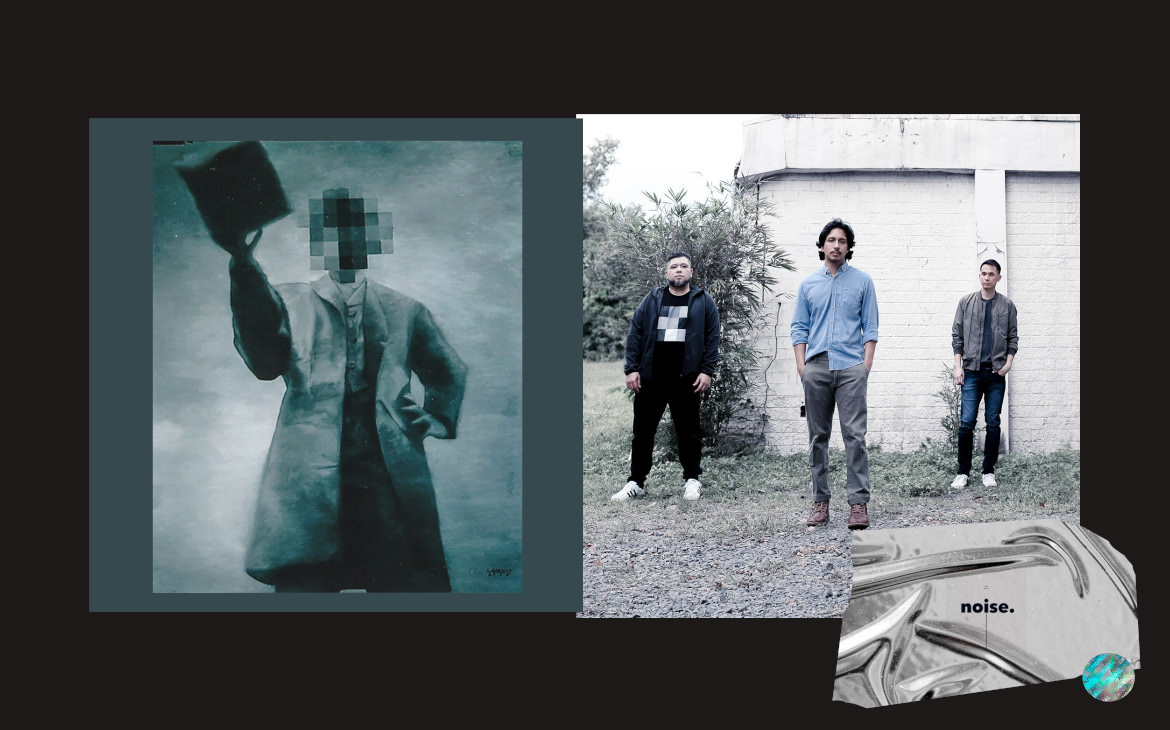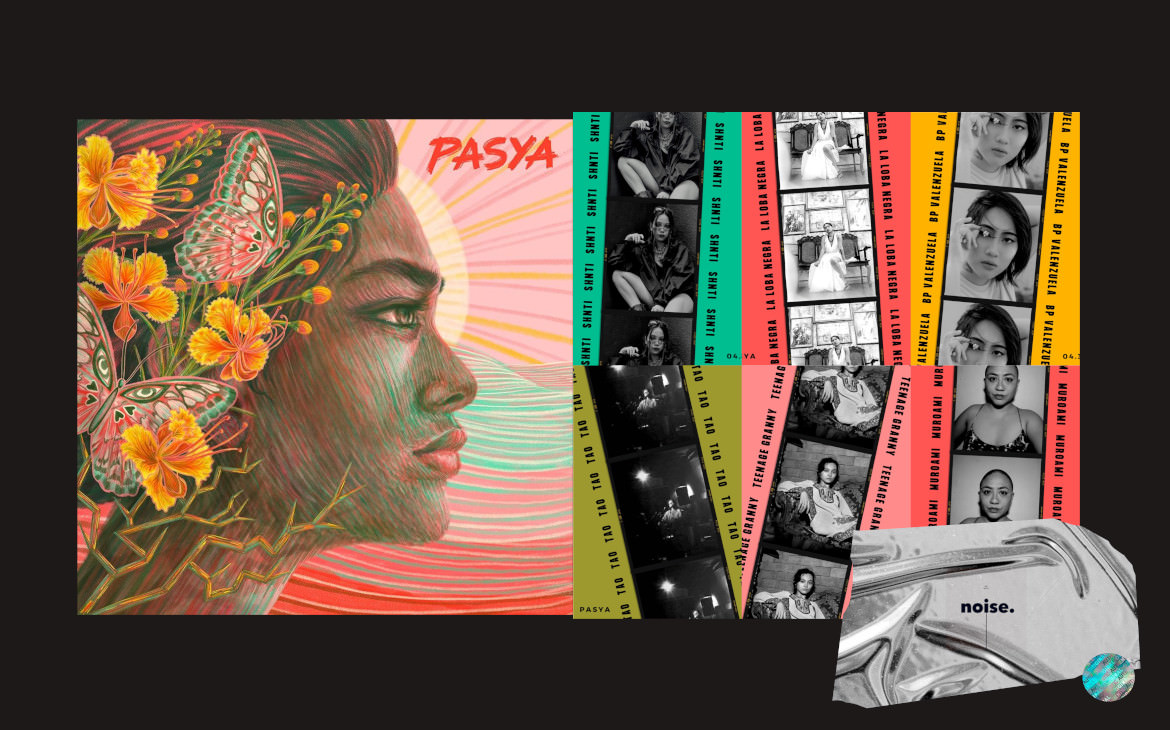WORDS BY ALDUS SANTOS
“We stand by the beauty and the power of outsider music to change people’s lives for the better.” Where we talk to 4AD’s Ed Horrox about the label’s storied existence, with a little help from fellow admirers in the local scene.
Even the most adventurous of listeners can get lost in the muck and the mire.
Sure, going down the weird-music rabbit hole is a rite of passage—like bad sexual encounters and getting your first stitches—but thankfully, it doesn’t have to be a solitary activity. Often, discovering the bands and records that end up as personal “lifers” can be as simple as being led by the hand down smelly, badly lit alleys with a spirited guide.
And for a lot of us who came of age in the late ‘80s until the mid-‘90s, that proverbial usher took the form of 4AD Records, who in 2020 just marked 40 years of churning top indie and enabling earth-shattering geniuses, from the Pixies and Throwing Muses to St. Vincent and The National, among countless others in between.
But before any of these people became names, they were first promises: out of view, cropped out of the picture, buried in the mix.
The key is to have the nose for such characters.
The Comforts of Madness
“For any music lover, the trick is to stay in touch with the childlike enthusiasm we all enjoyed when discovering new music when [we were] young,” says 4AD A&R chief Ed Horrox, who would paint a picture for The Rest Is Noise of how—from the label’s humble beginnings to eventually writing the bible for indie—the London-founded outfit has always made it a point to simply “follow the music.”
Which is also the reason why 4AD has made it a point to not rest on their laurels. “We bring ‘new kids’ into the family on a regular basis—[both] artists and co-workers—and they help bring [that] vital energy, and, as you say, a rabble-rousing spirit,” Horrox adds.
For any music lover, the trick is to stay in touch with the childlike enthusiasm we all enjoyed when discovering new music when [we were] young.
Wave of Mutilation
The label first came to prominence in the early ‘80s when the goth-dreampop-alternative trifecta was first taking wing with acts like Cocteau Twins, Bauhaus, and Dead Can Dance, among others. Since then, they have been on a steady ascent with notable peaks: the 1990s via acts like The Breeders, Lush, and Red House Painters; and the 2000s with such red-letter additions as Camera Obscura, TV on the Radio, Deerhunter, Grimes, and a host of others.
Clearly, what began as a scene-centric operation blossomed into a more encompassing one.
But what is a “scene” anyway?
“A positive definition might be a bunch of artists inspiring each other and being productive, possibly with a geographic nexus. The opposite might be lots of less imaginative bandwagon-jumpers and hangers-on flogging a dead horse,” Horrox offers, adding that both are “part of the ebb and flow of ideas and artistic movements,” and in the end prescribing immersion to negotiate that fine line.
Crossing Oceans
In these shores, it would be a gross understatement to claim that 4AD culture has made a ripple. Dale Marquez of seminal Manila shoegaze act Sonnet LVIII (also co-producer of the magnificent compilation Other People, out now via Blanc and Grey Market) latched on to the label’s early roster quickly. He names Victorialand by the Cocteau Twins as an evergreen favorite, but says that he also took an immediate liking to bands like Throwing Muses, Dead Can Dance, Pixies, This Mortal Coil, Dif Juz, and The Wolfgang Press, bands whose music, he says, “took me to a whole different world.”
The label’s cool insularity also appealed to Marquez, whose projects are imbued with a strong communal spirit. “As a musician or producer, you tend to reach out and connect to people who are very much like you, the people who would understand what you’re doing,” he says, citing releases he spearheaded—like the Shoegaze Pilipinas compilation, the aforementioned Other People, and his own band Sonnet LVII’s vinyl release Crossing Oceans—as “music that speaks to me,” and also as “music for outsiders, done by outsiders.”
I Melt with You
Melt Records co-founders Dexter Sy and PJ Ong are the same. For the Cebu-based indie label, going by instinct—though arguably counterintuitive in economic terms—is the only way to go. “As a matter of principle, I’ve always believed that if we like it, many others will, too. We just need to find [those people]. Easier said than done, but if 4AD and many others did it, it’s hopefully something we can pull off ourselves,” Sy says.
He also speaks of the matter of roster curation, something which 4AD has done as well as circus tightrope, and something which Melt prides itself in, too. “Case in point: two of our first artists, Honeydrop and Tiger Pussy, can easily be on polar ends of the genre spectrum, but for some inexplicable reason, we thought they would fit well together—in the same gig, for example—and they always did!” Sy adds. In the end, he stresses, being an indie label enables learning through risk-taking and trial-and-error.
As for Ong, the visual mastermind of the pair, he admits to looking up to 4AD design stalwart Vaughan Oliver as inspiration, open in his estimation of the design rock star as personal benchmark in his work as Inodoro™. “[Oliver] was certainly a rebel. He was ahead of his time, he made his own rules, [and] he had a design stamp that eventually became quintessential 4AD,” Ong says, further describing Oliver’s designs as “visceral, dark, bold, atmospheric, [and with] a revolutionary streak to them.”
Ong is particularly effusive about 4AD’s synergy of record-making and design, which is, essentially, also the Melt credo. “[Melt has become] a visual playground for us, side by side with music production. The end in mind? To create a big impact on music-visual culture in general,” he ends.
Lonely is an Eyesore
Rounding up our local indie labels is Clem Castro’s Lilystars Records, an enterprise that has never shied away from unknowns and outliers. “Since our inception, Lilystars knocked on obscurity with an against-the-flow mentality,” Castro says, admitting the draw of particular sounds and genres, to whose practitioners he’s always intended to offer “a home to grow, learn, and be heard.”
From its modest beginnings as a passion project to house his own acts—including the magnificent Camerawalls and the criminally-overlooked Dragonfly Collector—Lilystars went through valleys and peaks but eventually hit its stride. As of last year, for instance, it started a rigorous calendar of releases that continues to this day, testament to its pledge to work as “support system, curator, and community builder” for local musicians with a global bent.
“[We] take inspiration from a number of independent labels like 4AD. Our long-term vision is to put the Philippines on the map with the type of music we create,” adds Castro, who continues to shepherd future-forward releases—in more recent memory, Paper Satellites’ “Towns,” Parasouls’ “Let’s Pretend,” and Project Orange’s “Play, Pretend”—while also gunning for improvements on the label’s marketing, publishing, and distribution fronts.
Bills & Aches & Blues
In the age of streaming and social, the necessity of labels periodically comes into question. But 4AD doesn’t fancy itself as a magic bullet, despite the crossover of some of their acts from cult darlings to mainstream prizewinners. The behemoth it has become owes more to its dogged insistence on innovation than the cogs of big industry turning. “The journey you describe […] is one we are familiar with, and it is why certain artists and their teams are interested to partner with us. That’s not to say artists want to win prizes; in my experience often they don’t. More important is career growth without artistic compromise, and I believe 4AD offers this,” 4AD’s A&R chief shares.
The label’s storied existence is being celebrated anew with the landmark compilation Bills & Aches & Blues, out April 2 on digital and with physical arriving July 23. In it, 18 acts in the present roster interpret choice cuts from across 4AD’s history, “a creative experiment rooted in the spirit of collaboration and a snapshot of [the label] 41 years after its inception,” a release says.
More important is career growth without artistic compromise.
Canonical favorites from Pixies (“Where is My Mind, “Gigantic”), The Breeders (“Cannonball”), and Tim Buckley (“Song to the Siren”) are well-represented, but so are newer-era cuts. Spencer and Dry Cleaning, for instance, does a Grimes cover each (“Genesis,” “Oblivion”); while Aldous Harding and Helado Negro both tip their hats to Deerhunter (“Revival,” “Futurism”).
Several other curiosities pepper the bill, such as genre-bending takes by U.S. Girls, Bing & Ruth, and Tkay Maizda of well-loved cuts from the treasure-trove catalog.
“We stand by the beauty and the power of outsider music to change people’s lives for the better,” Ed Horrox says in closing.






